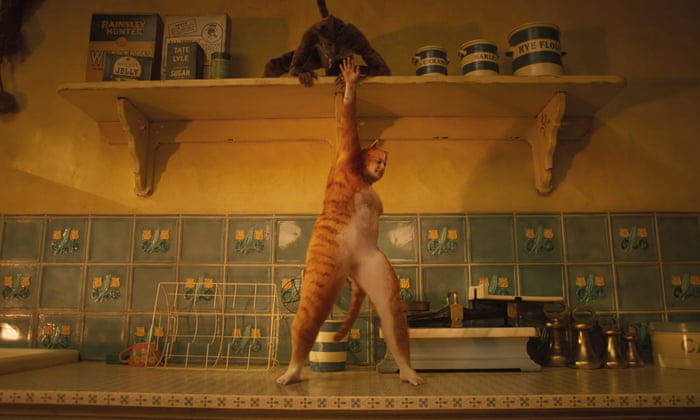Ah, the joys of the world of the musical biopic.
Since cinema's earliest days, the biography has been one of the most popular genres. It allowed studios to brand a film instantly to a recognizable personality and gave its stars the opportunity to "stretch" by playing a famous individual and dragging willing audiences through their various trials and tribulations, from radium poisoning in the case of Marie Curie (Greer Garson, 1942, Madame Curie) to treating rabies (Paul Muni, 1936, The Story of Louis Pasteur).
The musical biopic offers even rarer treats: the opportunity to witness artistic creation itself, whether it's Mozart scratching out "Ah Tutti Contenti" from Figaro while noodling around with a billiard ball in Amadeus (1984) or Loretta Lynn finding simple inspiration in her own story in Coal Miner's Daughter (1980). The musical biopic has led to thrilling performances from unexpected places, like Gary Busey's uncanny turn in The Buddy Holly Story (1978), as well as some embarrassments, like Cary Grant's ridiculously concocted Cole Porter in Night and Day (1946).
Rocketman, unfortunately, lies in the netherworld between extremes. With its subject still very much alive and very much in control of his narrative, the film struggles to keep the highs high and the lows not too low. Substance abuse and sex addiction are name checked in the film's trope-laden rehab scenes -- the "story" is told from the point-of-view of John, mid-career high, attending group therapy sessions where he, of course, is the star. The film goes nowhere near the grimy aesthetic of Sid & Nancy (1986) or the Dexedrine-fueled mania of All That Jazz (1980), both films that, for better or worse, treated addiction and dependency like the diseases they are rather than annoyances to be ticked off a list.
This is at the heart of why the movie fails; it refuses to invest in anything other than the idea that this Elton John guy (Taran Egerton, trying valiantly) writes some pretty great songs, doesn't he? The film grudgingly checks off the landmarks as we pass them: absent/negligent father figure (check!), loving but promiscuous mother (check!), doting grandmother/sage figure there at just the right time (check!), and so on.
Incidents pile up on each other like many, many glitzy costumes tossed in a hamper. John sees a potential manager, who hands him an envelope of lyrics to compose to, as a test, by this Bernie Taupin fellow (a game and engaged Jamie Bell, who does this sort of thing seemingly effortlessly). Instantly they're writing hits, which gets them to America, which gets them famous, which gets the attention of Robb Stark--er, John Reid (Richard Madden).
Which leads to the least sexy sex scene between two objectively attractive people I've ever witnessed on screen, through no real fault of Madden or Egerton. Presumably the reason the film is rated R (boys kissing!), the scene is a clinical barrage of quick cuts (hand across a chest, thigh raised provocatively, lips parted in a sigh) that is as sexy as a pop-up ad for an erectile dysfunction medication. Perhaps it fails to ignite because, like the rest of the film, it seems to be a series of separate shots, pieced together like items on a list.
Passion? Check!
The film shuffles on from there, with John booking bigger and bigger dates. Reid taking over as his manager implies something of a financial scandal, although nothing so much as to derail John's inevitable wake-up call that leads him to make accusatory calls to each of his parents, after blowing off a concert and before barreling into a therapy session in a sequined orange demon outfit (the film's meager attempt at a framing device).
The movie's entire lack of initiative is almost staggering. Howard, unrecognizable in a brunette wig, registers in the film's aftermath because she so perfectly matches the film's style that her failure to make an impression makes the impression. "Pinball Wizard," performed by John in Ken Russell's film of The Who's Tommy (1975) is reduced to a montage of hats and sunglasses (I'm not kidding). Which reminds me...
You might be wondering why I have to this point not commented on the musical numbers, when this is, after all, a musical biopic.
The music is the reason the film exists in the first place-- all those hit songs. Performances at the Troubadour club in Los Angeles, shamelessly scrubbed into a well-lit immaculate sound stage presided over by an improbably wigged Tate Donovan. An L.A. garden party at "Mamma Cass's house" (Mamma Cass sold separately, one imagines). 1950s London streets imported from either Absolute Beginners (1986) or Detective Pikachu (2019), it's hard to say. The Cannes and Nice settings from John's own 80s music video for "I'm Still Standing." The musical numbers are mortared in between the dramatic scenes with minimal perfunctory changes to the lyrics to adjust the tone to the scene. They are also severely truncated, for the most part, and reduced to snippets, as if the film doesn't have time for them with so much story to tell.
It's an odd choice, and it doesn't work. It lends the film the air of a travel presentation -- you can see all these fabulous things, if you just go here! And "fabulous" is what the movie seems to have top-most on its mind. Production design and costuming are first-rate, with hair coming in a close second (so many variations on John's' expanding and contracting baldness, Egerton's scalp should get its own award). Makeup is a distant third -- its approach to old-age is entirely based on a system of eye-bags, judiciously employed.
Wait, what was I talking about? Oh, the music.
The film features some songs by Elton John and Bernie Taupin that are adequately performed. It was written by Lee Hall and directed by Dexter Fletcher.
See? It's as easy as checking off a list.

